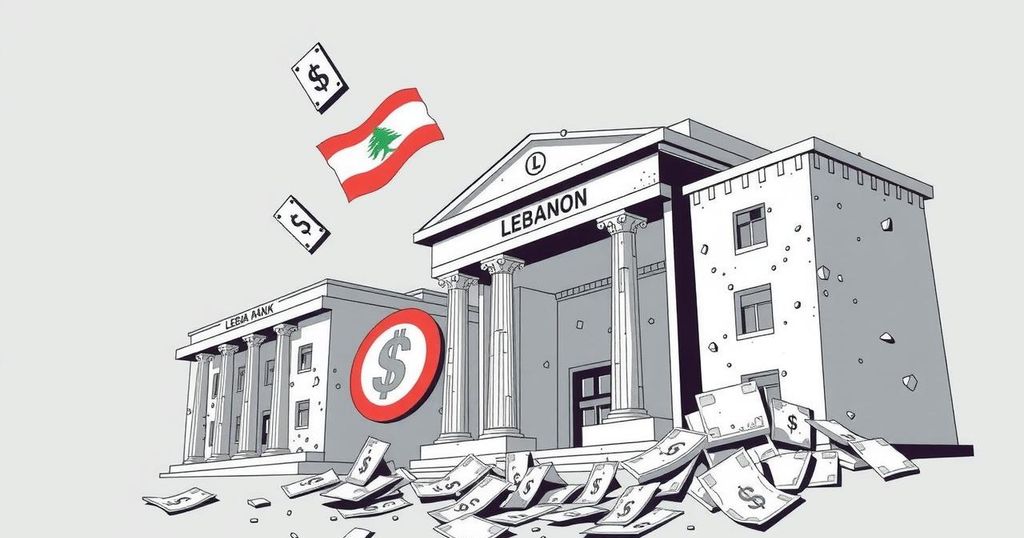Six Years On, Lebanon’s Banking Crisis Deepens Without Legislative Solution

- Lebanon marks six years of a deepening banking crisis.
- Political instability has left citizens frustrated and angry.
- Experts indicate a lack of structural response is part of the problem.
Lebanon’s Banking Crisis: A Deepening Dilemma
Lebanon is now marking six years of an ongoing banking crisis, a situation that has waxed and waned yet continues to burden its citizens. The Lebanese banking system, once considered a stronghold of economic stability, has faced relentless deterioration, with substantial losses reported by banks and depositors alike. The root causes remain unaddressed, compounded by a lack of effective legislative solutions and continued political instability.
Political Stalemate Fuels Economic Uncertainty
The lack of response from lawmakers has exacerbated public frustration, as citizens grapple with soaring inflation and dwindling access to their savings. Many people are urging the government to take immediate action and implement reforms that could restore confidence in the banking system. There is a palpable feeling that without substantial political will, the crisis will only escalate, leaving the average Lebanese citizen to shoulder the burden of a failing financial structure.
Experts Warn of Long-Term Implications
Various experts have attempted to analyze the ongoing situation, attributing its persistence to structural weaknesses that have gone unaddressed for far too long. The absence of a coherent strategy to tackle banking sector failures has led to comparisons with other financial crises worldwide. As local and international observers continue advocating for meaningful change, it remains to be seen whether legislative efforts will come to fruition or if this crisis will remain an undeniable aspect of Lebanon’s future.
In summary, Lebanon’s banking crisis continues to deepen six years in, primarily due to a lack of legislative action combined with ongoing political instability. Citizens are left frustrated as their economic futures hang in the balance without necessary reforms. If lawmakers fail to engage constructively, the consequences could be dire for the nation’s financial landscape and its people.







